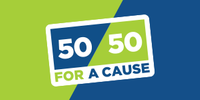Most Estevan residents have been in such a situation...the phone rings, the number isn't familiar, but you answer just in case. A voice then proceeds to convince you that you have a situation that only they can help you with, but you must provide your credit card information. Or, yet another message on your answering machine tells you about the 'great deal' you may have missed out on, unless you 'call right now'.
Obviously, most instances can instantly be identified as your everyday classic scam. However, if threats on your security or family are introduced, the picture can quickly change. One such example is calls received from those claiming to be representing the Canada Revenue Agency (CRA). They 'warn' that, if you don't 'pay your taxes', you may find yourself in prison. On the answering machine, they'll advise you to call back as soon as possible to avoid arrest. While these are, at times, laughable, some of them can be convincing.
"It's just been an ongoing thing for the last couple of years that we've had a substantial amount of calls. In fact, I've personally received probably 3-5 calls at home at my residence as well, in relation to someone claiming to be an officer from the CRA," said Sergeant Kevin Reed with the Estevan Police Service.
"You'll never be approached by a government agency over the telephone, and given a call back number to call them. They'll always send something to you in the mail, something that's more committed and more firm as to who's actually contacting you. It's probably safer, in most circumstances, to call back a number that is in the blue pages for the department that is sending you corrorspondence, rather than the call back number that is left on your message manager. Then you know who you're calling."
Many people report being a conversation with the 'CRA', who will go so far as to request payment in iTunes cards.
"There's never a case that anybody's going to accept payment for taxes via iTunes cards. The government is not in the business of accepting iTunes cards for payment. If you owe the government money in taxes for some reason, you'll get a formal notice from them," said Reed.
"At least at this time, it's a conveniant time for people to be attempting these frauds due to the fact that tax season is coming up, so it's on everyone's mind. We need to go through the formal process rather than responding to a telephone call."
He added that the EPS prefers you notify them whenever you receive these calls, so they can then inform the public, and attempt to identify and follow up.













